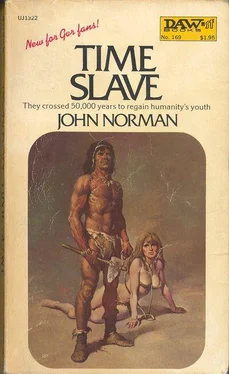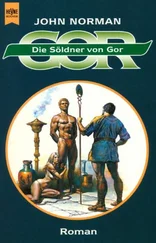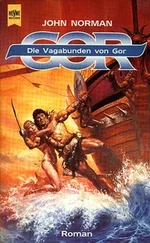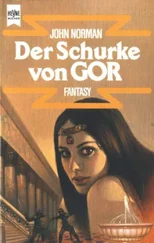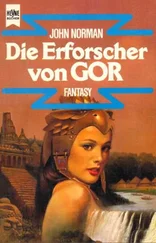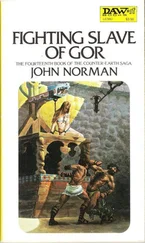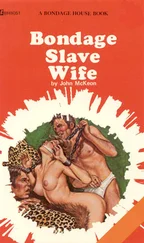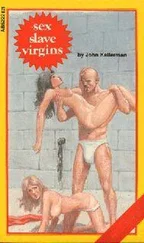No one spoke. And Herjellsen again rested his head back on the pillows. He seemed scrawny, almost, now, and futile, and silly in the red and white pajamas. He was only a primate with delusions, one who could not understand evident realities. To whom could such a man speak? To the world he despised he could count only as a madman. It could only kill such men, or ridicule them, for he was like a knife to the belly of complacency. “The enemies,” said Herjellsen, “lie about us, outside us and within us. They are the little men, the small men, the insects who can dream only the dreams of insects. They cannot know the greatness of man. It cannot register on the compound eye; it eludes the antennae, his strides cannot be understood by the tiny feet to whom a leaf is a country, a weed a continent. Their measurements and scales are not those of men. Comfort, security, softness, too, lie about us, and within us, more deadly than the aging heart, the wretched, brittle valves, the withered tissues.” The old man’s eyes blazed, and it seemed his weakness, his tortured frailness vanished, and there was only, for the moment, burning within him, flaming, the intellect, the heart, the indomitable will. “Civilization,” said he, “is not the end, not the termination, the destiny. It is the vehicle, the path, the instrument. Without it we cannot achieve Man, nor discover him.”
“And where,” asked Gunther, “shall we achieve man? Where shall we discover him?”
“Among the stars,” said Herjellsen. “We will not achieve Man until we, his precursors, stand among the stars. It is then, and then only, that we will discover him. He may be found there, and there only! It will be only in the landscapes of infinity, you see, that he shall rise to his full height, for in what other country could a man stand as high as a man can stand? He will not be fully man until he can see the stars as pebbles at his feet.”
“The child died,” said Hamilton.
“We have all failed,” said Herjellsen, turning ashen, falling back to the pillows.
“What is so important,” asked Gunther, “about the child?”
“And how,” asked Hamilton, “could you seriously have expected me to turn the eyes of men to the stars?”
“By the child,” whispered Herjellsen. “By the child!” He looked at her, sadly, through the thick lenses. “Words will not turn men to the stars, though they may open the eyes of men who have eyes with which to see the stars. Words are little, and futile, a bit of noise, briefly heard, swiftly forgotten, and fatuous, and not enough. I did not expect you to argue with hunters, nor to explain physics to them, nor to instill in them dreams.”
“What did you expect me to do?” asked Hamilton.
“Whether a man can see the stars, in his heart as well as in his eyes, like cattle or birds is a little understood factor locked in his genetic codes. It is much like the factor that permits one man to detect the beauty of music and forever precludes another from its raptures; it is like the factor that permits one man to be strong and denies strength to another; it is like the factor that makes it possible for one man to be touched by love, and forever makes this splendor an enigma, a fiction, to one who might otherwise be his brother.”
“The hunters are dead,” said Gunther. “They died, and many thousands of years ago.”
“What did you expect me to do?” asked Hamilton.
“Bear the child,” said Herjellsen. He looked at her. “Civilization totters,” said Herjellsen. “It is dying. It is choking on its own filth. Ever more toxic grows the atmosphere. Ever more abundant grow the multitudes, crowding and pressing, hating and sweating and squirming for room to love, to breathe and live, and dying, denied and crushed, gasping in the jungles and sewers of their own garbage. And looming on the brink of this poisoned tank we note, poised, the ultimate purificatory instrument. Insects will survive, and, it is likely, certain forms of reptiles. Little else. Surely not man.”
“How would the child make such a difference?” asked Hamilton, puzzled.
“It would be, in its way,” said Herjellsen, “not only my ancestor, but my grandson. It would have borne within it my seed, my genetic coding, a part of me, a particle of a protoplasmic, carnal chain which might reach high enough to explode in its fragments of significance among the stars.”
“How can it be before you, and after you?” asked William.
“Time,” said Herjellsen, “is not understood. It is perhaps a condition of our representations, constituting for us a reality, but not in itself the ultimate reality. The concept of time, as we think of it, is filled with conflicts, and it cannot, as we think of it, correspond to a reality. Our minds are perhaps not equipped to understand the true nature of time. What we experience as time may be something in itself quite different, a color we cannot see, a sound we cannot hear, a reality we can know only under our own consecutive forms of perception.”
“Surely, for us,” said William, “time is quite real.”
“Surely,” said Herjellsen. “That is not at issue. What is dubious or problematic is the nature in itself of that which we experience as time. Doubtless time is a real mode in which that reality expresses itself, and in this sense is not unreal, but only is not understood. Color and sound, too, are real, but they are not, surely, identical with vibrations, gross and tenuous, in an atmosphere. Similarly the vibrations themselves may not be ultimate, for in one of their dimensions, they are temporal, and time, as we have suggested, cannot be as we conceive it. Could there be a first moment of time? Or, could there not be a first moment of time? The dilemma, my beloved friends, makes manifest the limitations of our concepts points clearly to their inadequacy, and hints timidly at what must lie beyond, the different, the mystery, the reality.”
“How,” asked Hamilton, “could one child make a difference?”
“It could,” said Herjellsen, “make all the difference in this world, and in others, because of the hundred geometries of biology. The child begets its children, and each of these begets others in turn, and others.” Herjellsen smiled. “All of you,” he said, “you, Gunther, you, William, as well as you, my beloved daughter, may be my children.”
“I look about the world,” said Gunther. “I do not think so. These are not Herjellsen’s children.”
“The child, Herjellsen,” said Hamilton, “died.”
“Consider the world,” said Gunther. “It is not populated with the children of Herjellsen.”
“The hunters are dead,” said William.
It was only the Dirt People who, in the long run, survived, thought Hamilton. Victors in the long course had not been the hunters, so vain, so proud, so arrogant, so vital, so cruel, so strong, but the Dirt People, with their seeds, and their sacrifices and their sticks. Horizons and stars had not been victorious; but barley and beer.
“I am sorry, Father,” said Hamilton.
“Let him rest now,” said William.
Herjellsen laid back against the pillows. He pretended to be Asleep. When they had left, he wept.
It was in the neighborhood of ten in the morning, in late June. It was a light, brightly sunny day, cool. The short night preceding had been pleasant even chilly.
Hamilton sipped her coffee, black, sitting at the small table in the open-air restaurant on the Vester Farimagasade.
From the harbor, more than a kilometer away, there was a breeze, carrying over the city. She could smell fish, and salt.
She liked the city. It was clean, as cities went, and the people calm, industrious. She liked the Danes. She liked the sky over the city, the wind.
Читать дальше
